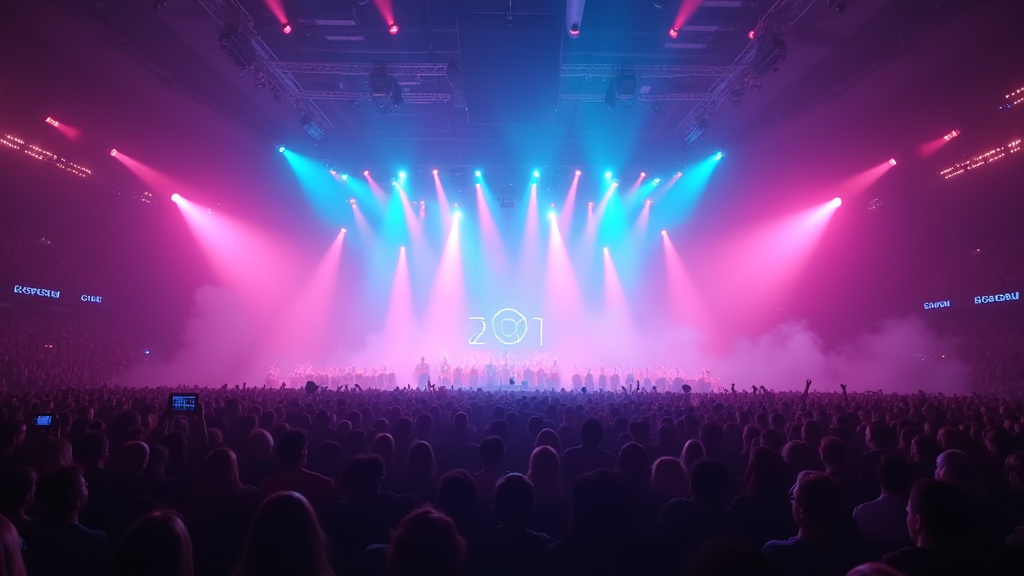Introduction
The European Parliament’s Internal Market Committee (IMCO) has taken a significant step towards regulating the burgeoning intersection of artificial intelligence and the music industry. On May 25, 2025, the committee put forth a compelling proposal aimed at establishing greater transparency in how music royalties are handled in the age of AI. The draft legislation, tentatively titled the “AI Music Transparency Act,” signals a growing concern among European lawmakers regarding the impact of AI technologies on artist compensation and the integrity of creative works.
Addressing the AI Revolution in Music
The rapid advancement and integration of AI into music creation, production, and distribution have introduced complex challenges, particularly concerning the flow of royalties. As AI-generated or AI-assisted music becomes more prevalent on streaming platforms, questions surrounding fair compensation for human artists and rights holders have intensified. The opacity often associated with digital music royalty calculations, combined with the new complexities introduced by AI, has fueled demands for clearer rules.
Sources within Brussels indicate that the impetus for this draft act stemmed directly from concerns voiced by key stakeholders in the music ecosystem. Artist unions and independent labels, in particular, have been vocal about the need to protect fair compensation and maintain creative control in a landscape increasingly shaped by algorithmic processes. They argue that without robust transparency, artists risk being unfairly disadvantaged as AI tools become more sophisticated and widely used by platforms and content creators.
Key Provisions of the “AI Music Transparency Act”
The core of the proposed “AI Music Transparency Act” lies in its mandate for comprehensive disclosure. The draft bill specifically targets two critical areas:
Royalty Calculation Transparency
Under the proposed regulations, streaming services and entities utilizing AI for music generation or distribution would be required to unveil the methodologies behind their royalty calculations. This means disclosing the specific algorithms and the data sources used to determine how artist payouts are apportioned and calculated. The aim is to shed light on the often-opaque algorithms that govern revenue distribution on digital platforms, enabling artists and labels to better understand how their earnings are generated and identify potential inequities.
This provision is intended to empower artists and rights holders with actionable information, moving beyond aggregate payout data to reveal the underlying logic and variables that influence individual compensation. It addresses a long-standing demand within the music industry for greater clarity in digital royalty reporting.
AI Content Identification
Another pivotal requirement of the proposed act is the mandatory disclosure and identification of AI-generated content. Streaming services and AI music generators would need to implement mechanisms to clearly label or otherwise make known which tracks have been created or significantly assisted by artificial intelligence. This aims to create a clearer distinction between human-created and AI-generated music on platforms.
The rationale behind this provision is multifaceted. It helps in correctly attributing rights and ensuring that human artists receive proper credit and compensation. It also provides platforms with the necessary information to potentially manage content volume and quality, and helps prevent the market from being saturated with unidentifiable AI-generated tracks that could devalue human artistic work. For consumers, it offers transparency about the nature of the content they are listening to.
Political Support and Industry Impact
The proposal appears to have garnered significant traction within the European Parliament. Sources confirm the draft bill received bipartisan support within the IMCO committee, signaling a broad consensus on the need for regulatory action in this domain. This level of cross-party backing enhances the likelihood of the proposal progressing through the complex EU legislative process.
If the “AI Music Transparency Act” is ultimately passed into law, its implications for major digital platforms would be substantial. Companies like Spotify, which operates extensively within the EU market and continuously explores new technologies, along with potential future services that leverage advanced AI for content creation or distribution, would face a direct mandate to overhaul their existing payout reporting mechanisms. The proposed deadline for implementing these changes is set for Q1 2026, should the legislation be enacted. This timeline would necessitate significant technical and operational adjustments for affected entities.
Enforcement and Future Standards
To ensure compliance and underscore the seriousness of the proposed regulations, the draft act includes robust enforcement mechanisms. Provisions are included for imposing fines of up to 5% of a company’s global annual revenue for non-compliance with the transparency and disclosure requirements. This substantial penalty reflects the EU’s determination to create effective deterrents and enforce the new standards rigorously.
The overarching objective of the “AI Music Transparency Act” is ambitious: to establish a new, clear standard for digital music economics specifically tailored to address the challenges and opportunities presented by artificial intelligence within the EU’s digital single market. By mandating transparency in algorithms and content identification, the act seeks to foster a more equitable and understandable environment for artists, labels, platforms, and consumers alike.
While the proposal is still in its draft stage, its introduction by a key European Parliament committee with bipartisan support marks a critical moment in the global conversation about AI, creativity, and compensation. It positions the EU as a potential frontrunner in developing regulatory frameworks designed to ensure that the benefits of AI in music are shared more fairly and that the rights and contributions of human artists remain central to the industry’s future.





